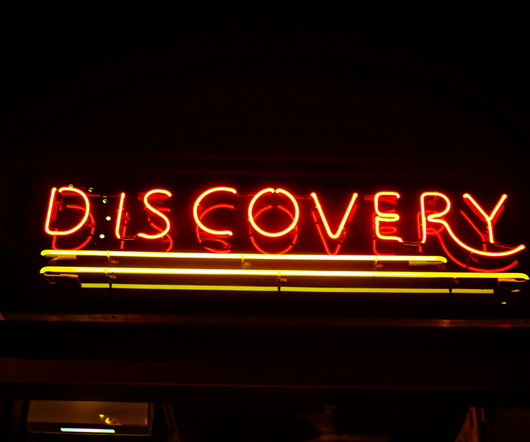Exploring the Future of Legal Innovation at The Masters Conference: Thought Leadership in D.C. and Social Media in Discovery and Investigations
CloudNine
APRIL 15, 2025
The reticence on the face of many in the room underscored the power of this tool in the hands of e-discovery professionals. In one powerful case example shared, a claimant in a workplace injury lawsuit posted photos of themselves competing in a dance competitionat a time they were allegedly too injured to work.












Let's personalize your content